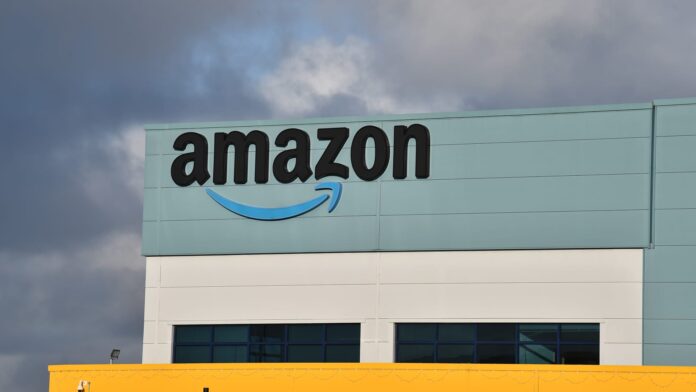An Amazon warehouse in Warrington, England.
Nathan Stirk | Getty Images
Amazon faces a $1 billion class action lawsuit in the U.K., where the company has been accused of using a “secretive” algorithm to abuse its dominant position in e-commerce.
Amazon harms its customers by directing them to its “featured offer,” resulting in better-value deals being hidden and consumers ending up paying more for products, according to the suit, which is expected to be filed with the Competition Appeal Tribunal in October.
The suit alleges Amazon exploits its so-called “Buy Box” to steer shoppers toward its own products and items from third-party sellers who use its order fulfillment and delivery services.
The Buy Box is an area on Amazon’s product pages that gives customers a one-click option to “Buy Now” or “Add to Basket.” Amazon sets certain criteria for sellers to become Buy Box eligible and, if accepted, they gain placement advantages for their listings.
It adds that Amazon uses a “secretive and self-favouring algorithm to ensure that the Buy Box nearly always features goods sold directly by Amazon itself, or by third-party retailers who pay hefty storage and delivery fees to Amazon.”
The litigation is being led by Hausfeld, a specialist law firm. Between 80% to 92% of Amazon purchases are made on its Buy Box tool, according to Hausfeld.
Anyone who lives in the U.K. and made a purchase on Amazon since October 2016 falls under the claimant class, Hausfeld added.
Hausfeld estimates total damages from the litigation in the region of £900 million ($1 billion) if it succeeds. Julie Hunter, an independent consultant, is the lead representative.
“Millions of consumers have paid too much and been denied choice. This action seeks fair redress for them,” said Lesley Hannah, one of the Hausfeld partners leading the litigation. “Amazon takes advantage of consumers’ well-known tendency to focus on prominently-placed and eye-catching displays, such as the Buy Box.”
“Amazon doesn’t present consumers with a fair range of choices – on the contrary, the design of the Buy Box makes it difficult for consumers to locate and purchase better or cheaper options,” Hannah added. “Amazon should not be allowed to take advantage of its customers in this anticompetitive way.”
An Amazon spokesperson said the claim is “without merit and we’re confident that will become clear through the legal process.”
“Amazon has always focused on supporting the 85,000 businesses that sell their products on our UK store, and more than half of all physical product sales on our UK store are from independent selling partners,” the spokesperson told CNBC. “We always work to feature offers that provide customers with low prices and fast delivery.”
The claim is the subject of an antitrust investigation by the Competition and Markets Authority, the U.K. competition watchdog. In July, the CMA initiated a probe into the company over concerns that its U.K. marketplace “may be anti-competitive and could result in a worse deal for customers.” The European Commission, the EU’s executive arm, has opened a similar antitrust investigation into Amazon’s alleged “self-preferencing” practices.
Class action lawsuits of this type aren’t common in the U.K. They’re “opt-out,” meaning they’re brought on behalf of every individual that falls within the class unless they expressly opt out, similar to U.S.-style class action cases. A recent change in U.K. law paved the way for a flood of opt-out class action suits, with other cases against Meta and Google ongoing.
“It is a new process and all the courts involved in it are feeling their way but there is clearly a trend for these mega actions for consumers claiming many billions of pounds,” said David Greene, committee member of the London Solicitors Litigation Association.
“Clearly Amazon will fight the case at all stages including class certification but the Tribunal has made a number of orders recently for similar actions, certifying the opt out process. It is of course difficult at this stage to assess the likelihood of success in these cases but the Big Tech companies are well resourced to fight.”
— CNBC’s Arjun Kharpal contributed to this report


